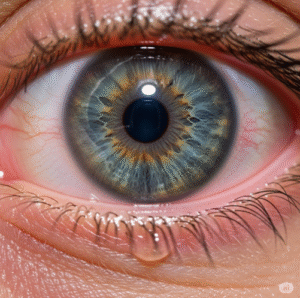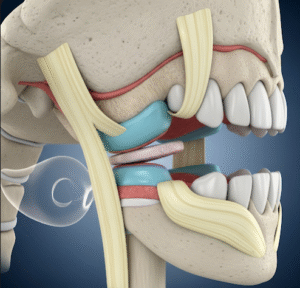What it is
Polycystic Ovary Syndrome (PCOS) is a common hormonal disorder affecting women of reproductive age. It is characterized by irregular periods, excess androgen (male hormone) levels, and polycystic ovaries (enlarged ovaries with multiple small follicles).
✔️ Symptoms: Irregular or absent periods, acne, excess facial/body hair, weight gain, hair thinning, and difficulty conceiving.
✔️ Health risks: Untreated PCOS increases risks of infertility, type 2 diabetes, heart disease, and endometrial cancer.
✔️ Management in Korea: Focuses on symptom relief, fertility preservation, metabolic health, and long-term disease prevention.
➡️ PCOS care in Korea is offered at gynecology clinics, endocrinology departments, and fertility centers.
Why it’s done
Management of PCOS is essential because it:
🔹 Regulates menstrual cycles, reducing risk of endometrial problems.
🔹 Improves fertility for women planning pregnancy.
🔹 Controls symptoms such as acne, weight gain, and excess hair growth.
🔹 Prevents complications like diabetes and cardiovascular disease.
🔹 Enhances mental health, as PCOS is often linked to anxiety and depression.
💡 Highlight: PCOS management is not only about cosmetic concerns—it is about protecting reproductive and long-term health.
Alternatives
While standard medical treatment is common, women in Korea may also consider:
➡️ Lifestyle changes – healthy diet, regular exercise, and stress management.
➡️ Nutritional supplements – inositol, vitamin D, and omega-3s.
➡️ Acupuncture and Korean traditional medicine – used to balance hormones and improve ovulation.
➡️ Herbal remedies – such as red ginseng or dong quai, often integrated with modern treatment.
➡️ Cycle-tracking apps – to monitor irregular periods and ovulation.
⚠️ Note: Alternatives may support symptom control, but medical supervision is vital for preventing complications.
Preparation
Before starting PCOS management in Korea, preparation usually includes:
✔️ Menstrual history tracking – irregular cycles, missed periods, heavy bleeding.
✔️ Medical history – diabetes, thyroid disease, family history of PCOS.
✔️ Lifestyle review – diet, exercise, stress, and sleep patterns.
✔️ Lab tests – hormone levels (testosterone, FSH, LH, prolactin, thyroid hormones).
✔️ Ultrasound – to confirm polycystic ovaries.
💡 Tip: Korean doctors often request blood tests and ultrasound before starting treatment, ensuring precise diagnosis and individualized care.
How it’s done
Management of PCOS in Korea involves a multi-approach strategy:
- Lifestyle modifications
- Weight loss through balanced diet and exercise improves ovulation.
- Low-glycemic diets are often recommended.
- Medications for menstrual regulation
- Birth control pills to regulate cycles and reduce androgen effects.
- Progesterone therapy to protect uterine lining.
- Fertility treatments (if pregnancy is desired)
- Ovulation induction drugs (clomiphene citrate, letrozole).
- Injectable hormones under careful monitoring.
- IVF (In-vitro fertilization) if other methods fail.
- Medications for metabolic health
- Metformin to improve insulin sensitivity.
- Used widely in Korea for women with PCOS and insulin resistance.
- Symptom management
- Acne and excess hair growth managed with hormonal therapy or dermatological care.
- Hair thinning treated with medications and hair restoration therapies.
- Traditional Korean medicine
- Acupuncture to improve ovulation and reduce stress.
- Herbal prescriptions designed to balance hormones.
💡 Highlight: Korean healthcare emphasizes individualized plans, combining Western medicine and traditional therapies for holistic care.
Recovery
Since PCOS is a chronic condition, management is ongoing rather than curative. Improvements typically include:
✔️ More regular menstrual cycles within 2–3 months of treatment.
✔️ Gradual reduction of acne and excess hair growth.
✔️ Weight loss and improved energy with lifestyle adjustments.
✔️ Improved fertility with ovulation induction or IVF.
✔️ Better blood sugar and metabolic balance with long-term care.
When to revisit a doctor:
➡️ If symptoms worsen despite treatment.
➡️ If planning pregnancy after long-term contraceptive use.
➡️ If new symptoms appear, such as severe pain or abnormal bleeding.
💡 Important: Regular follow-ups are necessary in Korea, with blood tests and ultrasounds every few months for effective monitoring.
Treatment option in Korea
Korea provides advanced care for PCOS management through:
⭐ Gynecology and fertility centers specializing in reproductive endocrinology.
⭐ University hospitals with multidisciplinary teams (gynecology, endocrinology, dermatology, nutrition).
⭐ Fertility treatments including ovulation induction and IVF at world-class centers.
⭐ Affordable healthcare costs compared to many Western countries.
⭐ Integration of traditional Korean medicine for women preferring holistic approaches.
💡 Highlight: Korea’s healthcare system offers cutting-edge fertility services and integrative hormone management, making it a strong destination for PCOS care.
Key Highlights
✔️ PCOS is a hormonal disorder causing irregular periods, infertility, and metabolic risks.
✔️ Management includes lifestyle changes, medications, fertility treatments, and symptom control.
✔️ Preparation involves hormone testing, ultrasound, and medical history review.
✔️ Recovery is ongoing, with symptom relief and fertility improvements seen in months.
✔️ Korean clinics provide advanced, affordable, and holistic care for PCOS.













